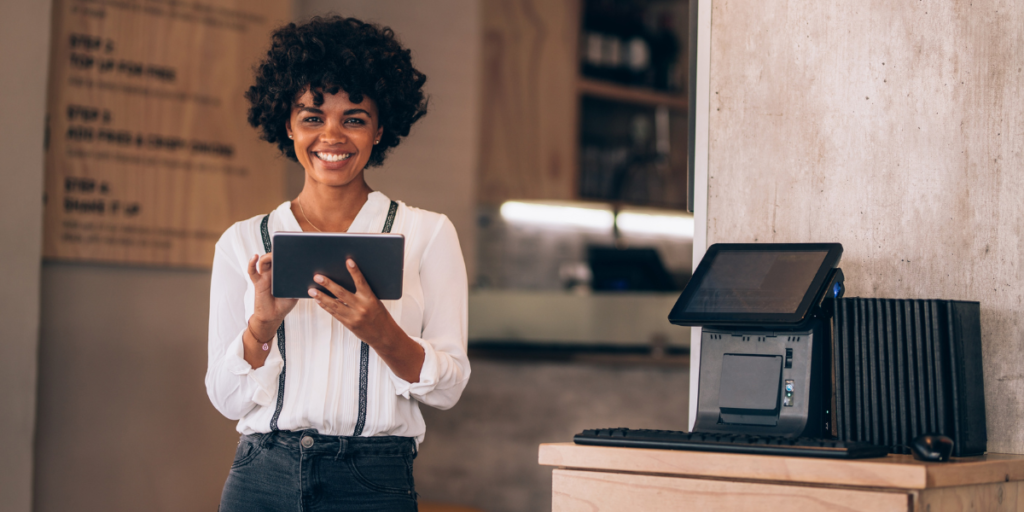
In Poland, industries with retail sales must use fiscal equipment. This also applies to catering. The aforementioned devices, along with payment terminals and POS, form three essential pieces of hardware equipment used in the customer service process at any retail outlet. If we consider the publicly available information, it turns out that there are more than 1.5 million fiscal devices installed in Poland alone. To this must be added more than 1.2 million payment terminals and other electronic equipment. The final volumes are gigantic. What’s more, more devices are being introduced to the market on a regular basis, and this has a great impact on the environment. Why is this happening and is a different, sustainable approach possible?
The use of fiscal equipment is an obligation under the law and applies to every entrepreneur who conducts retail sales. It is also mandatory to generate mandatory fiscal reports: daily and monthly, stored in the fiscal memory. Within about 5 years, each fiscal device must be replaced with a new one due to the limited capacity of the fiscal memory. The memory has the capacity to store about 1,830 daily reports, which means that the capacity of the fiscal memory is about to run out after 5 years, with 7-day-a-week sales. Once the entire capacity of the fiscal memory is used up, the entrepreneur is forced to buy a new, subsequent and expensive device. The existing one is becoming completely useless. Probably no one knows the use for a used cash register… Such a device cannot be sold or used for other purposes. The result is electro-waste, the disposal of which costs money and burdens the environment.
On the other hand, the use of payment terminals is possible until the “electronic death” of the device or possible functional changes (such as the introduction of contactless payments and the need to replace the devices). However, it can be assumed that the life cycle resulting from ordinary wear and tear of the payment device is also about 5 years.
So, averaging, we can say that every 5 years in Poland we replace (throw away?) almost 3 million fiscal and payment devices operating in retail outlets. What happens to these devices after their “electronic death”? Are they being put back into circulation? Do manufacturers recover parts and use them in the manufacturing process of new equipment? What happens to the batteries we can find in fiscal devices and payment terminals? The answers will not satisfy anyone who cares about the environment. Cash registers and payment terminals have no second life and are simply the most ordinary electro-waste.
Not every business operates for five years or more. There are times when the company’s lifespan is shorter. That’s why it’s also worth asking: what happens to the fiscal cash register or payment terminal when the venture fails and the business has to be shut down? Will I get back the money I spent? – In the case of a payment terminal, the matter is simple – the payment terminal goes to the company from which it was leased and, after refreshing, is leased to another entrepreneur. There is no secondary market for the cash register. The fiscal cash register is tied to a particular entrepreneur every time, and there is no possibility for another entity to use it. Therefore, the secondary market for fiscal equipment does not exist and the expense of purchasing the device is not recoverable.
Is there a solution available that reduces electro-waste while addressing the needs of modern business?
The answer is yes. Technological developments are making it possible to optimize the number of devices used in the life of a company. Already, the conscious and modern entrepreneur can use solutions that are not only cheaper to use on a daily basis, but are also better for the environment and have many useful functions to make running a business easier, which are not offered by a payment terminal or a standalone cash register.
Before we move on to describe the optimal solution for foodservice sales, let’s look at technological advances in another area. Progress that has had a tremendous impact on companies’ operations and has effectively reduced the number of electronic equipment in use cutting costs and reducing the burden on the environment.
Perhaps not everyone remembers, but companies used a variety of devices to communicate with customers, co-workers or suppliers. Pagers, fax machines and telexes were popular communication tools in the not-so-distant past. Over time, their popularity began to decline due to technological limitations and the development of more advanced solutions. With the spread of the Internet and cell phones, e-mail, text messaging and instant messaging have become more convenient and far more versatile ways to communicate. Currently, pagers, fax machines and telexes can be found only in museums of technology. As a result of technological changes, communication has been improved, increasing the efficiency of operations and reducing costs and resource consumption. The changes have also brought with them environmental benefits by reducing the amount of electronic waste and reducing the number of electricity consumers in companies.
The food service industry also has the opportunity to benefit from solutions that reduce the number of specialized electronic devices. Instead of using a lot of expensive equipment that burdens the company’s budget and has a negative impact on the environment, it is enough to use universal devices with the appropriate software.
POSEIDON360 software includes a modern sales application, a modern cash register application and a payment terminal application (SoftPOS). These three mentioned applications are integrated with each other and work on one device! Low monthly price for all important functions without unnecessary proliferation of electronics that need to be purchased and serviced. Order on the counter, no need to integrate separately operating devices, the ability to install even on a cell phone. The use of modern technology makes sense. Both economically and environmentally. Be smart, be EKO. Think through your choice before you spend money.
Undoubtedly, the use of POSEIDON360 software is a step toward sustainability for the food service industry. POSEIDON360 sales application, SoftPOS and cash register software combined installed on devices with NFC antenna help reduce electro-waste. An additional positive effect is the reduction of electricity consumption, which translates into financial savings and again into environmental protection. We are aware that every saving is important, so we encourage you to take steps to protect the environment and use greener solutions in your daily business activities.



